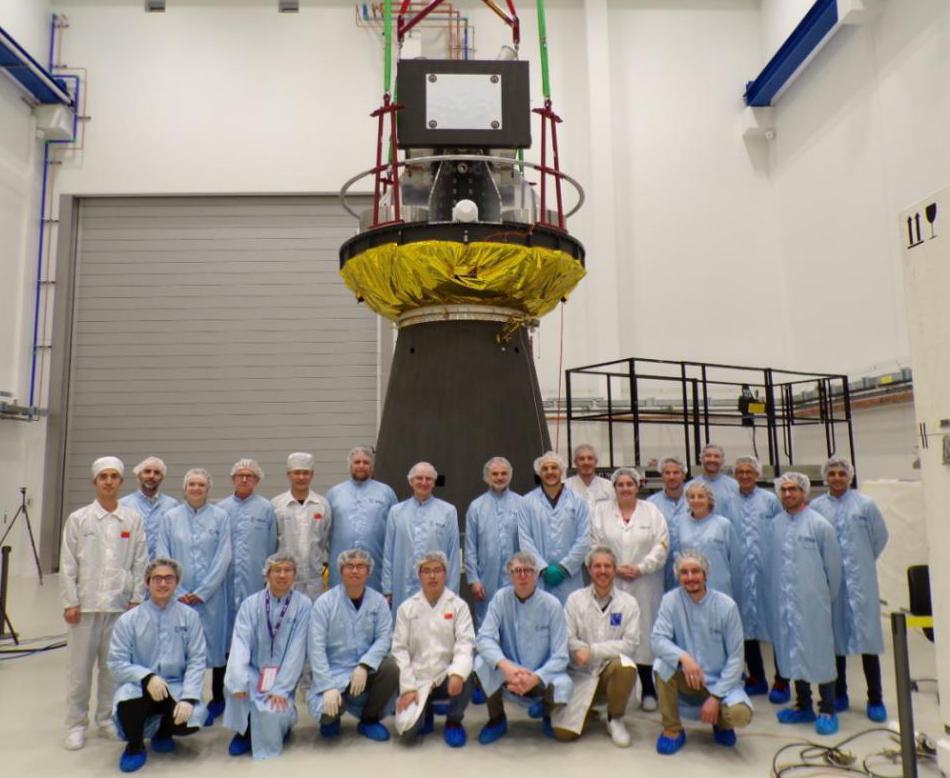CAS Joins Hands with ESA for Satellite Experiments

SMILE project scientists from CAS and ESA take group photo. (Photo: Microsatellite Innovation Institute of CAS)
By LIN Yuchen
Solar -wind Magnetosphere Ionosphere Link Explorer (SMILE) scientists at the Chinese Academy of Sciences (CAS), conducted joint satellite experiments with the European Space Agency (ESA) in the Netherlands earlier this year, which is China's first on-site interactions with Europe since January 2020, when an assessment of the SMILE project took place.
SMILE is the first self-standing mission jointly initiated by CAS and ESA. It is dedicated to observing the solar wind to revolutionize magnetospheric physics.
Various organizations came together to conduct the experiments this time round, such as Microsatellite Innovation Institute at CAS, ESA, Arianespace, and Airbus, each of them contributing differently to assembling the explorer.
According to China National Space Administration, the experiments were successful, laying the foundation for SMILE's Mission-Critical Design Review, which is expected to take place this June.
China made critical efforts early to prepare for the experiments. The three modules of SMILE were transported to ESA in advance at the end of December 2022, realizing the first transportation endeavor of Chinese satellites and equipment to Europe.
The SMILE mission team will conduct a series of docking tests in the following months, and will travel to Spain in April, Germany in May and September respectively, to further consolidate the development of SMILE's prototype and ensure the satellite launch on time.


